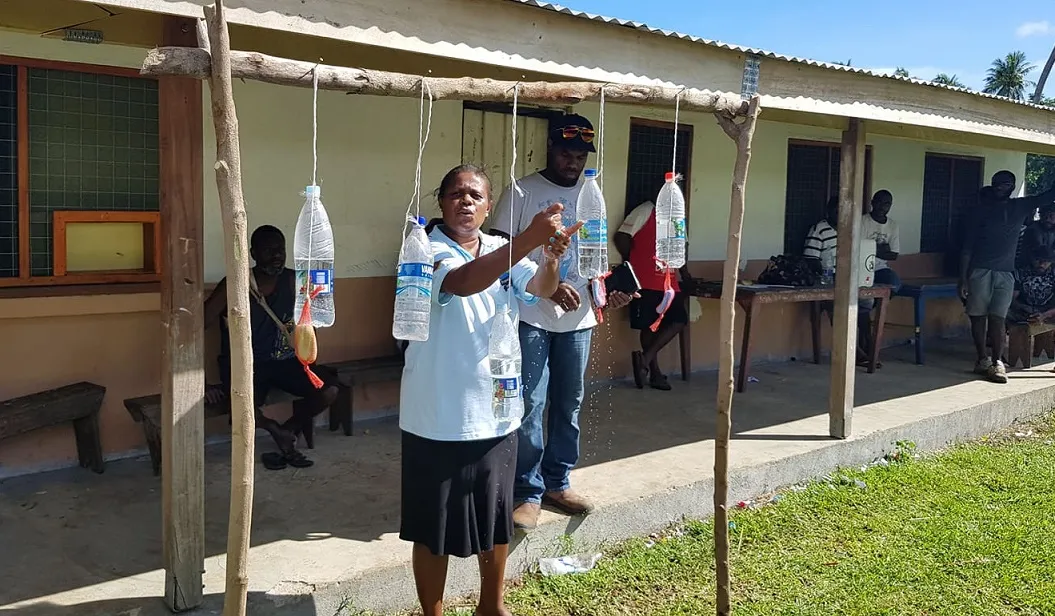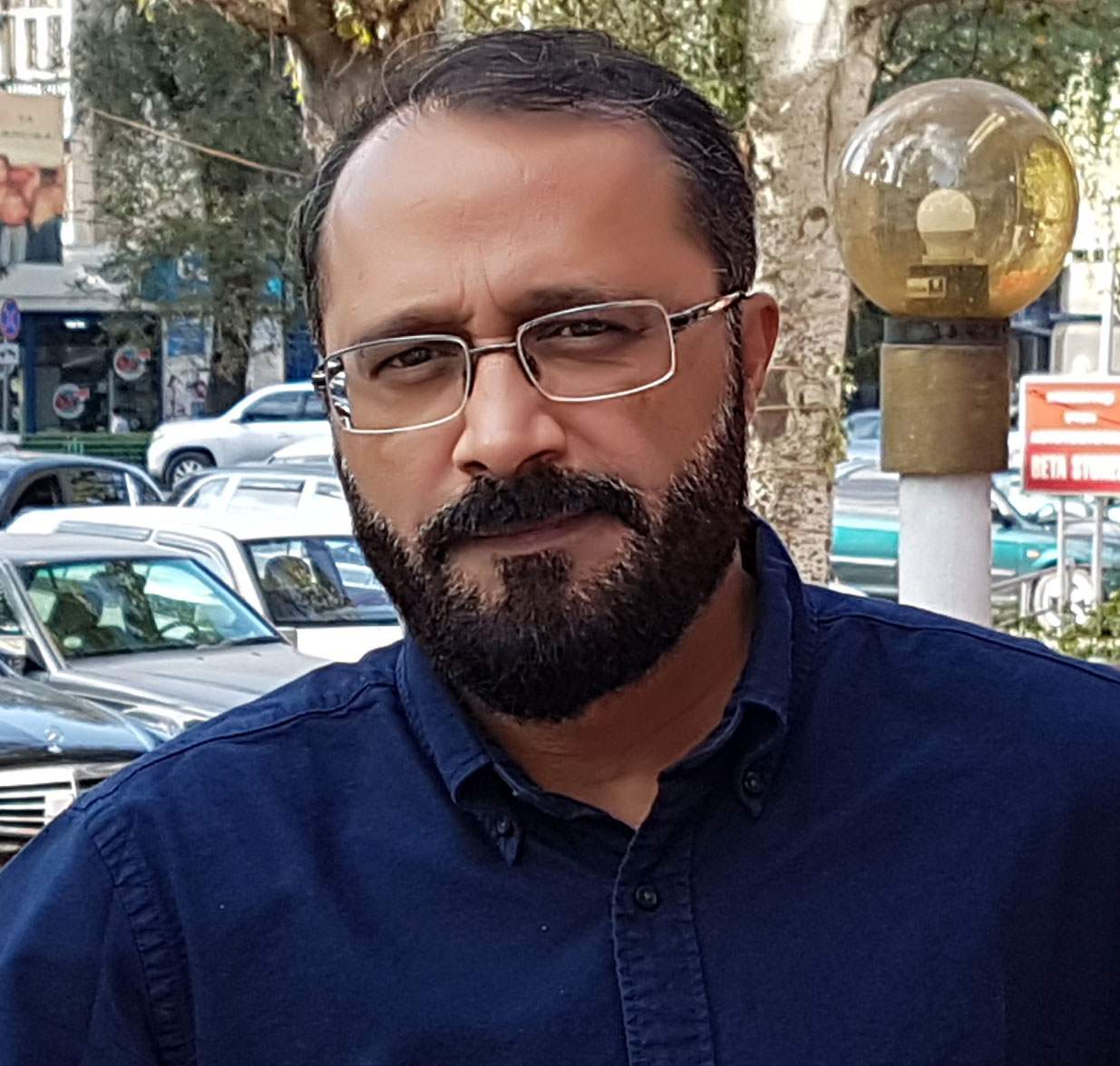Supporting Observation of a COVID-19 General Elections in Vanuatu

As more than forty countries worldwide have postponed their elections to minimise the spread of the COVID-19, a handful of countries proceeded with theirs in the month of March. Vanuatu, an archipelagic nation in the South Pacific with a population of around 300,000, was one of them. To date, Vanuatu has not had any confirmed cases of COVID-19 and being an archipelago, it is relatively easy to mitigate the risks by preventing international visitors coming from countries with high spread of the disease. The Government of Vanuatu was quicker than most and was more stringent than even neighboring Australia and New Zealand by requiring medical certificates for those who have transited through transport hubs like Singapore and Hong Kong since as early as 31 December 2019, even if they had spent at least 14 days elsewhere prior to arriving in Vanuatu. This policy was announced on 28 February 2020, hence it was one of the tightest measures at the time. Confident with the quick actions they had taken, Vanuatu proceeded to conduct its general elections on 19 March 2020.
True to our commitments to the Melanesian Spearhead Group (MSG), International IDEA provided technical support to their Vanuatu General Elections observation mission. Our support included provision of advice in developing their election observation methodology based on universal objectives, principles and mandates of international election observation missions of various recognized international and regional groups.
The association with MSG provided International IDEA an opportunity to understand the processes and methodologies that the MSG Observer Group (MSGOG) has been using to conduct their election observation missions. By embedding an expert with the MSG for the 19 March Vanuatu general elections, the process of developing MSGOG into a full-fledged election observation mission based on sound techniques and methodologies has taken off in the right direction. In fact, experiments such as developing an online electronic reporting tool, setting up of a Control Center and revisiting the positioning of a Core Team in an election observation mission provided the MSG Secretariat an understanding of the standard practices of election observation missions as is conducted globally.
The MSG primarily observes elections in the South Pacific starting with the 2014 General Elections in Fiji when they were part of the Multinational Observer Group, then independently as the MSGOG during the snap elections in Vanuatu in 2016. The current observation was the sixth of such endeavor. Alongside these experiences, there still exists sufficient room for improving their mission structure and overall management of such missions.
The field engagement with MSG for the Vanuatu general elections began on 10 March wherein a meeting with key members of the secretariat staff brought to fore some very significant aspects of the MSGOG mission objectives and structure. The MSG secretariat staff headed by the political and elections division were the de facto Core Team and partnered with observers from four other members—Fiji, Papua New Guinea, Solomon Islands and the Kanak and Socialist National Liberation Front(FLNKS)— and were deployed to different provinces to observe polling and counting process on the election day. Although the observers arrived in Port Vila a week before the elections, not much pre-election observation was possible owing to an extremely packed schedule prior to the deployment of observers, starting with two-day observers briefing, visits to governments and the election commission office, a weekend recess followed by deployment to the different islands. While reasonable efforts were made to observe the election campaigns during a small window that was provided between 14 March to 16 March, the focus of the mission was on the polling and the counting process.
Election observation tools and application of international election principles in an electoral process
During the pre-deployment briefing to the observers, International IDEA presented on the application of universal election principles in international election observation missions following an electoral cycle approach. Furthermore, advise were provided on how to use these standards to evaluate the outcome of an election, especially in determining its credibility and on determining the operational goals of a mission, such as whether it would be a comprehensive observation or a more focused/specialized observation. Finally, standard practices and methodologies were presented, that are generally used by most international election observation missions.
For the 10-member MSGOG led by former Foreign Minister of Fiji, Ratu Inoke Kubuabola,was comprised of Leonard Louma (former secretary of the government of Papua New Guinea) and an eminent person, Fred Bosoboe (Deputy Chief Electoral Officer of the Chairperson Electoral Commission of Solomon Islands), and Qenegei Dimitri (FLNKSof New Caledonia) besides the and support staff from the MSG secretariat. The presentations starting with the electoral cycle, the application of the international election principles and methodologies as used by most international observe group were an eye-opener of sorts.
We could not help but noticing the absence of women from among the observers. However, we are delighted to note the significant contribution of two women members in the core team, Monica Abau-Sapulai and Mothy Sisi. Monica was instrumental in developing the online reporting tool (see below), while Mothy made sure all observer teams could get deployed on time despite the growing travel restrictions around the region. Both contributed well while others were being deployed by coordinating coordination between the mission base and the various teams making sure quick calls and reports were done regularly and timely (see below for more details).
As continuation of a previous three-day training conducted at the MSG secretariat in Port Vila in November 2019, the present engagement was a more hands-on effort during an actual election activity and one that allowed the MSG observation team to assess the structure and mandate of their election observation mission (EOM) and improvements for the future. Their eagerness to learn and improve their missions was evident with the head of the mission acknowledging “the importance of such guidelines and international principles and developing the MSG methods in the future election observation missions.”
Control Center set up for MSGOG EOM, Online Reporting Tool for observers and Election Day Quick Calls
Two questions that were raised regarding the Control Center Management and its relevance to an EOM, the MSGOG members were apprised of the need for planning and designing a mission that is able to respond to some basic and essential needs such as logistics, security, observation and reporting by observers, either long term or short term observers and media and public relations. MSGOG members were also provided a comprehensive picture of how EOMs are designed by international election missions such as the European Union, the OSCE/OIDHR, The Carter Center, African Union and also other regional observer groups. Herein, the importance of an assessment/exploratory mission, engaging political, election, security and media analyst and the composition of the Core Team under the leadership of a chief observer, a deputy chief observer or a mission coordinator was underscored.
Besides the Control Center which was a key addition to the EOM, efforts to design an online reporting tool using free to access website was successfully done with active support from the able MSG information and technology (IT) staff, Monica Abau-Sapulai. The idea behind the reporting tool was to facilitate faster and real-time submission of reports using online checklists and reporting forms transmitted to a database managed by an IT and an Observer Coordination team at the Control Center. Even though the reporting tool was used as on a trial basis, it generated awesome response from the observers, which did not take much time to adapt to the mechanics of using an online reporting system. Most of the team kept sending trail checklists during the pre-election phase and later on the Election Day, some teams managed to submit the opening, a mid-day report, closing and counting forms. The submissions were monitored on a dashboard on a computer set up by the Control Centre Manager for receiving reports from all of the observer teams.
The online reporting tool was in addition to the manual checklists and reporting forms that the MSG has been using all along for its EOMs. The other addition were the quick calls on election day which were coordinated by the Control Center. The advantage these quick calls brings to an EOM is essentially to be able to record key findings to help the Core Team to develop a sense of the election environment, voter turnout, polling process, incidents the overall security environment and other events as it unfolds across the country on the election day. The process is also part of fast streaming of the most important details on the election day so as to be ready with adequate information for the Head of Mission as the EOM spokesperson to inform the media as and when the need arises. Besides, it is a way of ensuring that there is sufficient information from the field to help develop a framework for the preliminary mission statement, without having to depend on the slow stream process of submission of reports either via email or on paper checklists and narrative formats. Further, unforeseen roadblocks such as no internet connection or possibility of delay or cancellation of the transportations meant to ferry observer teams from their Area of Responsibility (AoR) to the mission headquarter in the country of observation, may also result in delay of submission of election day observation reports by observers and therefore the debriefing as well.
Conduct of the EOM
International IDEA engagement with the MSG during the Vanuatu General elections was a continuation of the three-day training held in November to increase understanding of basic design and overall approach of an EOM. Usually, the EOMs in the South Pacific are unique in a sense that an observer group like the MSGOG is assigned a certain geographic area (electoral districts) by the electoral management body of the host country to conduct its observation, while the other electoral districts are assigned to other observers such asthe Pacific Islands Forum (PIF) and the Commonwealth Secretariat.
The regions that were chosen for deployment for its observers were Efate Island, Santo Island, Tanna Island and Malekula Island which together has 31 electoral constituencies with 177 polling stations and 137,354 registered voters.
Like all the other international and regional election observation mission, the MSG EOMs had similar objectives of assessing if the electoral process was conducted without prejudice or bias, in a neutral and professional mannerallowing for the electorate to make their political choices freely without intimidation, bribery, undue influence or fear of retribution for their vote and voting was done by secret ballot. Besides, the EOM is also mandated to assess whether those seeking to contest in the elections are free to do so and get a fair chance to reach the voters without discrimination and finally to determine whether electoral legal framework is sound and the electoral management body is impartial and effective and conducts its activities transparently. The only difference perhaps is the smaller size and sale of the MGSOG missions, the dual role played by members of the MSG secretariat support team both as observers and also as the core team and finally the focus of the EOM which primarily is on the election day. Otherwise, the MSGOG missions are equally important when it comes to deciding the legitimacy of an election and at the same time strengthening the electoral processes in member countries.
Notably, the MSGOG underscored the importance of applying international election standards to measure the administration of elections by the electoral management body and also is assessing the overall credibility of the electoral process.
The Aftermath
While the MGSOG EOM was successfully undertaken, all its observers were not able to return to the headquarters in Port Vila as planned. The observer team which was deployed in Tanna Island had to stay put for a couple of days more, owing to travel restrictions in the wake of a COVID-19 alert following reports of passenger testing positive for the virus in a cruise ship that docked at Mystery Island and the larger Aneityum Island on both 11 and 12 March, after Vanuatu government authorities gave them clearance. Transfer of ballots to Port Vila was affected after the Vanuatu government issued strict instructions that patrol boats carrying ballot boxes must be quarantined pending medical clearance. The ballot boxes were later cleared and brought to Port Vila by the police.
On 26 March 2020, the President of Vanuatu announced a state of emergency to enable quick responses to the spread of COVID-19. The finalisation of the election results have been affected by travel restrictions as ballot boxes could not be returned to the capital of Port Vila on time and counting of the ballots is yet to start as of Friday 27 March 2020. Such is the hardship of holding elections in the midst of a global calamity. And it is for that reason, International IDEA has recently produced a technical paper on Elections and COVID-19.





